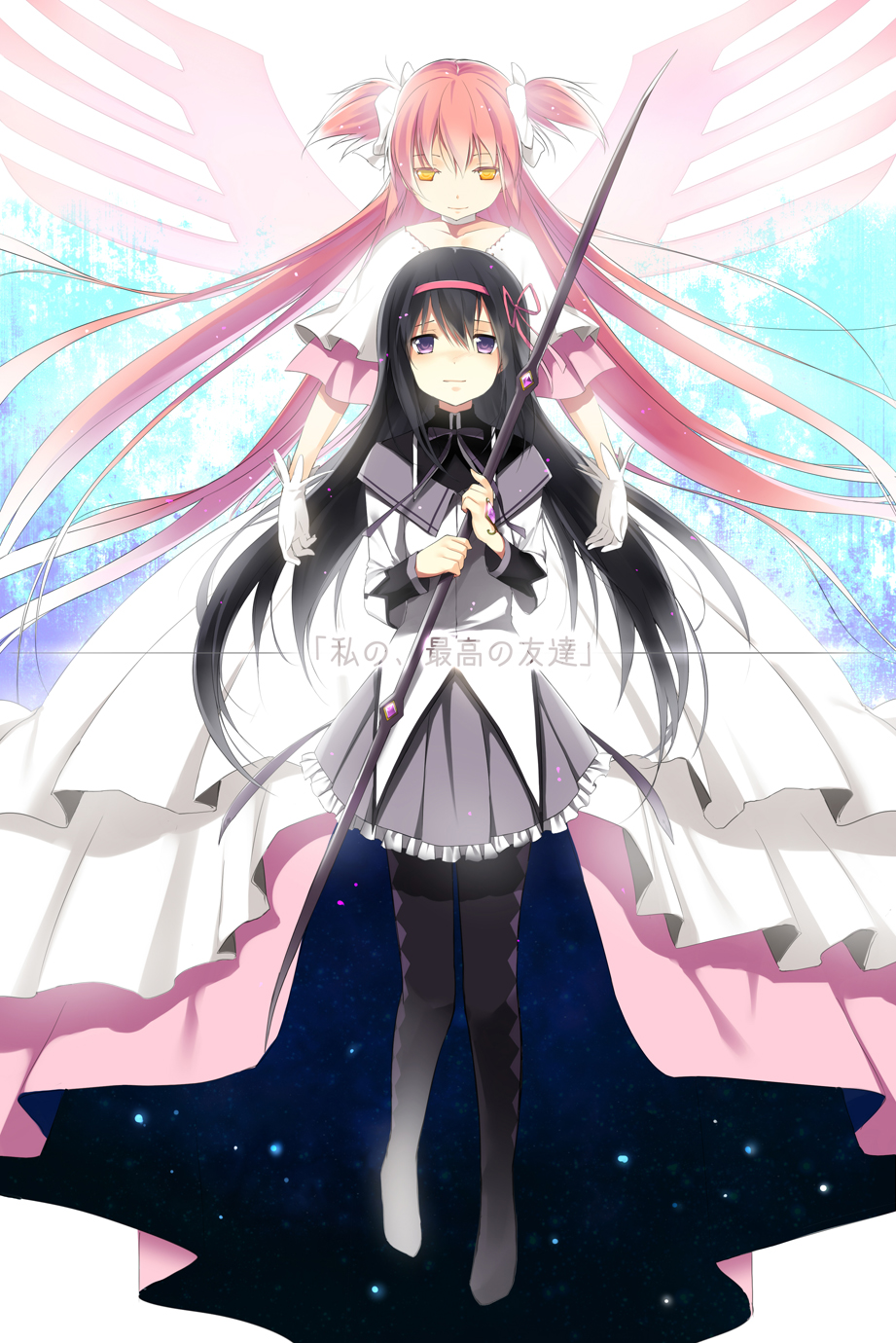It is pretty well known that Madoka drew on Faust, but typically analysis of Madoka has been more about how it relates to the Magical Girl genre and Anime trends in general. However there are some things about how Madoka uses Faust that I think are worth discussing. This is based on just the original stand alone series, I’m ignoring all the spin off Manga and Rebellion.
But first allow me to give a brief overview of the history of the Faust legend. Before the name of Faust appears.similar themes are seen in the stories about St Cyprian and Justina or Theophilus of Adana. (And sometimes comparisons to Simon Magus are made. ) The legend of Faust first emerged in Germany in the 1500s. Possibly partly inspired by the historical Alchemist Johann Georg Faust who lived about 1480-1540.
One of the first major dramatizations of the story was the English Language Elizabethan Stage Play written by Christopher Marlowe which has two contradictory versions. I watched a performance of it on YouTube. It might have been intended to be a commentary on Calvinism, since the key differences between the two versions come down to whether Faust had Free Will or not. This is one of the versions where there is no Salvation for Faust in the end.
Johann Wolfgang Goethe’s version of the story is clearly the primary influence on Madoka. For example Walpurgisnacht is a plot point in Goethe.
Then came George Reynolds' Penny Dreadful Faust saga which competed with Varney The Vampire, and then had a spin off called Wagner the Werewolf. And a famous puppet show. The perhaps most obscure treatment of the legend is in the first chapter of Paul Feval's La Vampire translated into English by Brian Stableford for BlackCoatPress as The Vampire Countess. But as a fan of theirs I feel compelled to mention it.
Not all of Madoka’s characters line up to characters in Faust even vaguely. There are three that to some extent do.
Kyubey is obviously Mephistopheles, that’s a no brainer.
Faust in this story is not the title character. All the other Magical Girls are to an extent, but chiefly it's Akemi Homura who is Faust.
The role Kaname Madoka fills is given away by the name of her Witch form, Gretchen. The character named Gretchen in Goethe's Faust is also known as Margurite or Margret. It’s possible to see Madoka as the closest thing to a similar sounding Japanese name.
The legend of Faust usually goes that he makes a deal with Mephistopheles selling his soul. They spend time being popular celebrities in Europe using their Magical Powers. Faust falls in love with Gretchen but Gretchen suffers a tragic fate because of Mephistopheles. Faust goes on being unrepentant. Many versions however have Faust saved in the end in-spite of his lack of Repentance, giving the story a Universalist tone.
Here is the thing about Goethe’s Faust that I feel is sadly overlooked in the context of its relationship to Madoka.
Faust is saved at the end when Gretchen who has become an Angel takes his Soul to Heaven snatching him away from The Devil. Yes, that’s right, even the Apotheosis of Madoka has a basis in Goethe.
Now Madoka has more agency then Gretchen in her Apotheosis, since Gretchen is just made an Angel as a reward for being Virtuous. But it’s somewhat subversive that Goethe considers Gretchen virtuous since she basically had an Abortion.
This aspect of the story descends from Theophilus being saved by the Virgin Mary. The Virgin Mary connection is also echoed by Ava Maria being played on the violin in the last episode of Madoka. I’ve commented elsewhere on how I think Fantasia may have also been an influence, Knight on Bald Mountain is depicting Walpurgisnacht.
"Virgin, Mother, Queen, ... Goddess kind forever... Eternal Womanhood. The Goddess is thus victorious over Mephistopheles, who had insisted at Faust's death that he would be consigned to "The Eternal Empty."- Goethe, Faust, Part Two, lines 12101–12110, translation: David Luke, Oxford World Classics.
That quote has the ability to seem both Feminist and Patriarchal in the same way that has made Feminists feel conflicted towards the Magical Girl Warrior genre since back when it was just Sailor Moon. So perhaps Faust was a more logical choice for a commentary on the Magical Girl genre than anyone originally thought.
